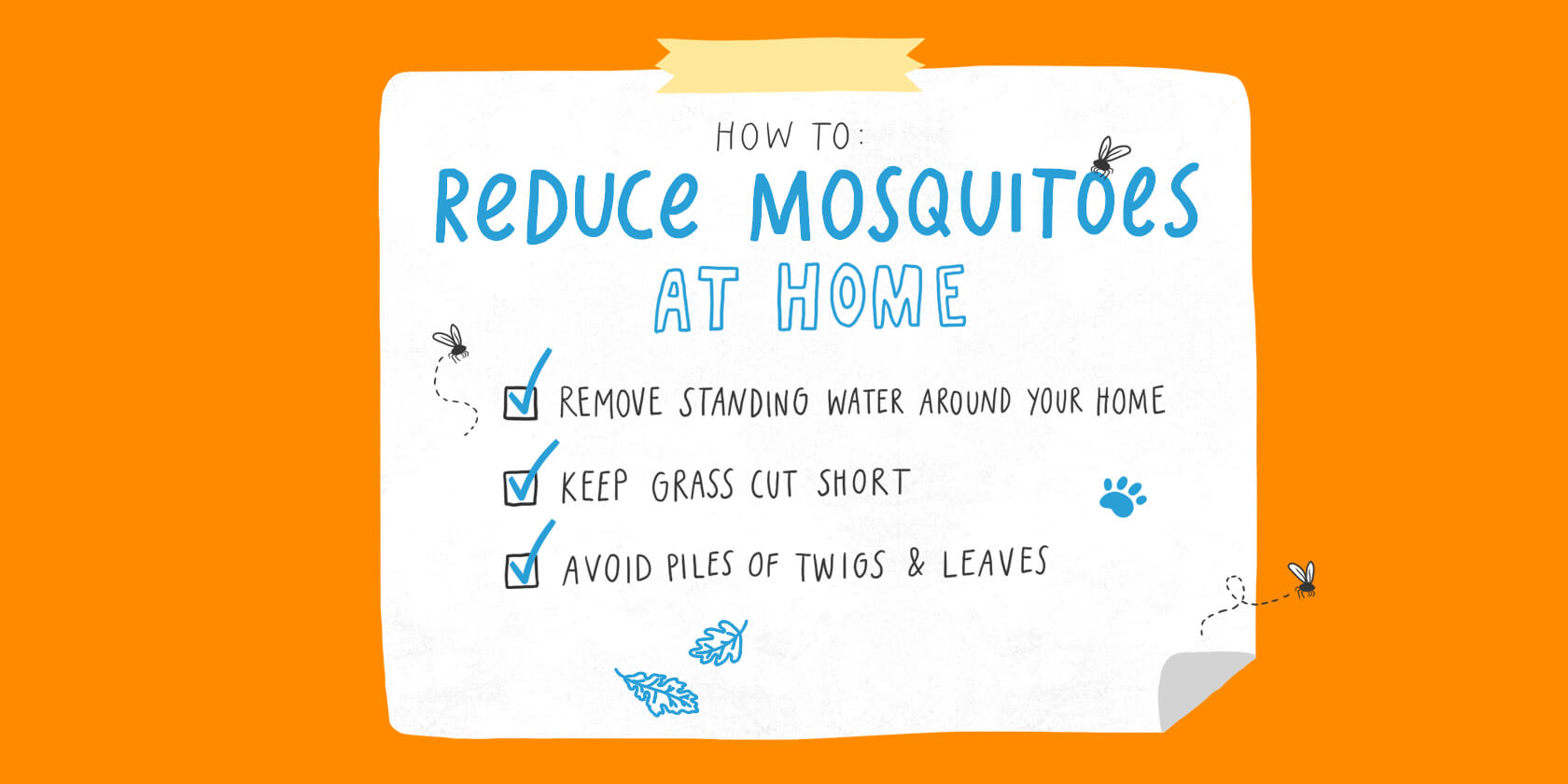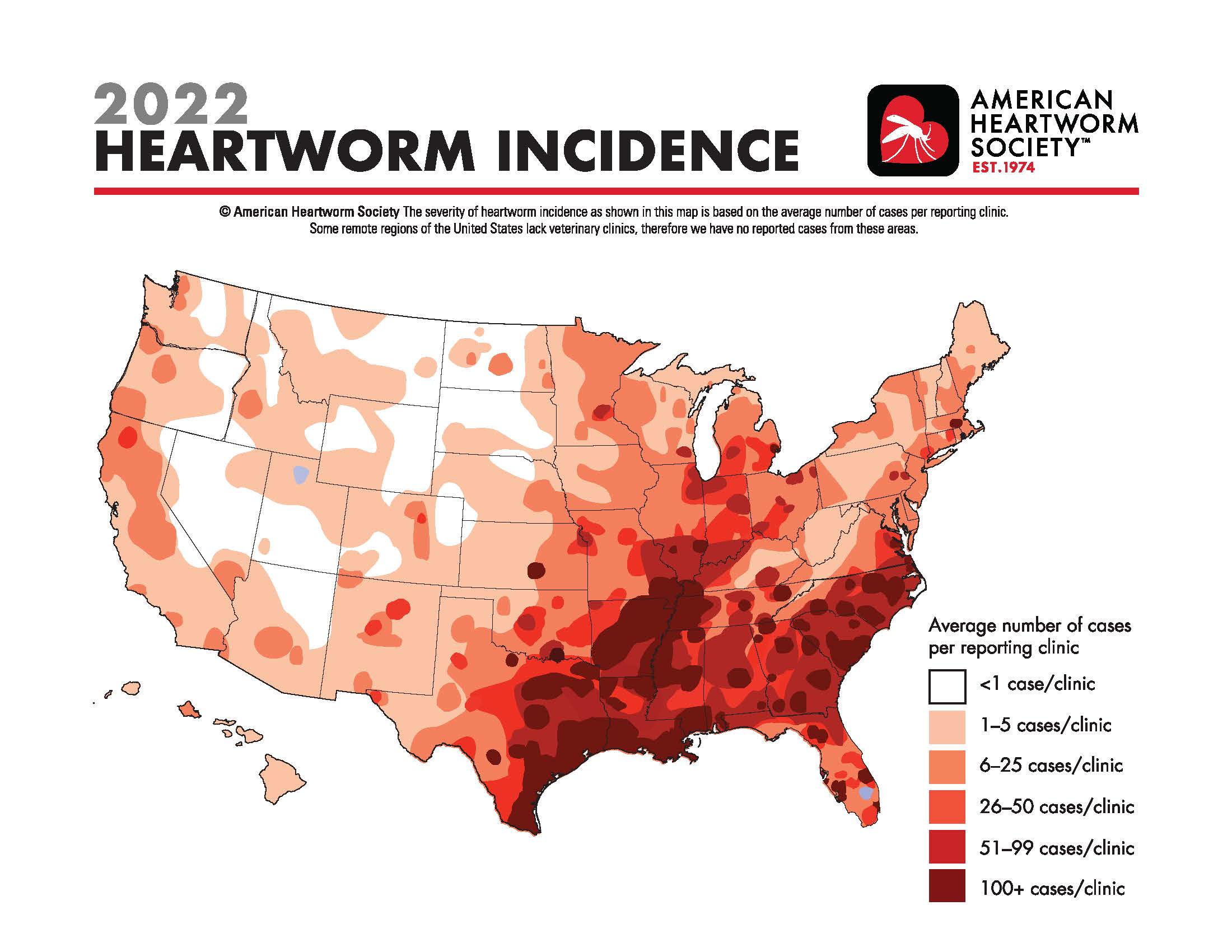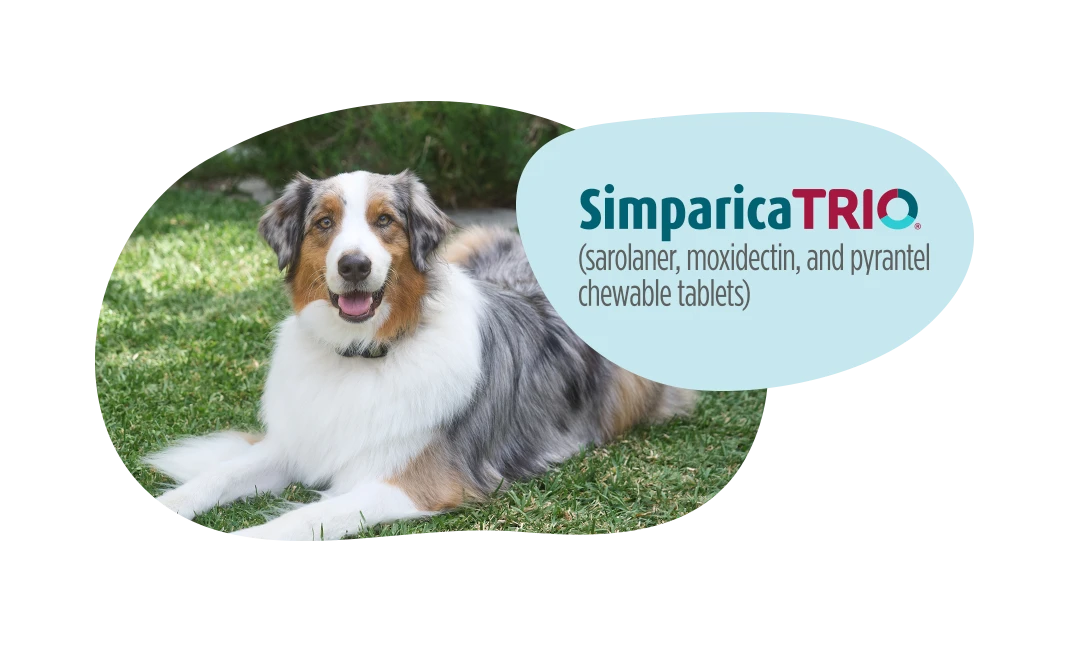Mosquitoes don’t just annoy and pass diseases, like Zika and West Nile, to humans — they can infect cats and dogs with heartworms, a potentially deadly parasite.
Because it can take just one infected mosquito biting your pet to cause a debilitating heartworm infection, take the following steps to help protect your pets.
Heartworm Disease Is Easily Preventable
Even indoor-only pets are at risk for heartworm infection because mosquitoes can find their way inside the home. Once an infected mosquito bites your pet, there’s only one thing that can prevent the development of heartworm disease — a heartworm disease preventative medication that you (hopefully) have all your pets on. There are both oral and topical heartworm preventative options for cats and dogs. For dogs, there are also options for 6 or 12 months of continuous protection with a convenient injection from your veterinarian.
Every pet and every situation is different, so be sure to talk to your vet about which options are best for your pets.
Reduce the Number of Mosquitoes Biting Your Pets
While it’s impossible to prevent mosquitoes from finding us, these are some tips that can help reduce the number of bites.

Remove Standing Water From Around Your Home
Mosquitoes lay their eggs on stagnant water, and larvae can hatch in as little as one inch of standing water. So, where there’s standing water, there is a good chance mosquitoes will lay their eggs (think empty flower pots, birdbaths, pool covers, and even bottle caps). You can help control the population of mosquitoes around your home by dumping any standing water, aerating the water in your birdbath, and skimming your pool daily if you have one.
Make Your Yard Uninviting for Mosquitoes
As the weather heats up, mosquitoes will find places in your yard that are inviting to hang out and cool off, like piles of twigs and leaves or overgrown grass.1 Clearing these piles of vegetation and keeping your grass cut short provides fewer places for mosquitoes to lie in wait to bite you when the weather cools off in the evening.
Mosquito Repellent
If you’re spending time outdoors with your pets, don’t use bug spray designed for humans on them — these repellents frequently contain chemicals that could be harmful to your pet. There are a few mosquito-repellent products that can be used on dogs. However, repellent products should not be used alone without the use of a heartworm protective product. Also, be sure the product you select is appropriate for your type of pet (i.e. a cat product for a cat).
What You Need to Know About Heartworms
Heartworms are serious and potentially deadly parasites that live in the heart, and lungs and are passed along to your pet through bites from infected mosquitoes. Adult heartworms can grow into foot-long worms that block the flow of blood, causing severe lung and heart disease and damage to other organs in the body.3
Cats
In cats, heartworms less frequently grow into adults, BUT it only takes 1 or 2 adult heartworms to cause severe damage and even death in a cat.2 Some cats do not show any signs associated with heartworm infection. However, sometimes infected cats may vomit, cough, or have a reduced appetite, while in some cases, the only sign is sudden death.2
Dogs
Dogs are a natural host for heartworms, meaning baby heartworms commonly mature into adult heartworms unless prevention is used. Heartworm disease causes damage to a dog’s heart, lungs, and arteries that can last long after the heartworms are gone. Dogs infected with heartworms can show symptoms such as a cough or tiredness after activity.3 It’s important to get your dog tested for heartworms annually. In some cases, testing needs to be more frequent to properly detect this potentially fatal disease, for example after adoption of a new pet.3
Heartworm Treatment
Heartworm Disease in Cats
There are currently no safe and effective adult heartworm treatments available for cats with heartworm disease. The only way to truly protect your cat from heartworm disease is to make sure their parasite preventative protects against heartworms and to administer them on it throughout the year. Given the seriousness of heartworm disease in cats, even indoor-only cats should receive parasite preventatives throughout the year. Talk to your vet about which heartworm preventative option is right for your cat.
Heartworm Disease in Dogs
There are effective treatments for dogs with heartworm disease, but treatment is complicated with many months of crate rest, and there are risks of complications depending on the damage already done. And, treatment can come at considerable costs. Prevention is the best option, so talk to your vet about heartworm preventative medication for your dog.3
How Prevalent Are Heartworms in Your Area?

This map from the American Heartworm Society shows heartworm incidence rates across the United States.4 Even if the maps shows you live in an area with a low concentration of reported heartworm infections, it’s important to keep your pet on heartworm medication to minimize their risk. Incidence rates fluctuate from year to year, and this map underestimates the true incidence of heartworm disease in the country.
Your veterinarian knows the best way to protect your pets in your area. So be sure to talk to them about the heartworm preventative options that are best for your cats and dogs.
ZPC-00235R2
Important Safety Information: Use with caution in dogs with a history of seizures. Simparica Trio contains sarolaner, a member of the isoxazoline class which has been associated with neurologic adverse reactions including tremors, ataxia, and seizures in dogs with or without a history of neurologic disorders. The safe use of Simparica Trio has not been evaluated in breeding, pregnant, or lactating dogs. The most frequently reported adverse reactions in clinical trials were vomiting and diarrhea. See full Prescribing Information.
SIMPARICA TRIO is indicated for the prevention of heartworm disease caused by Dirofilaria immitis and for the treatment and control of roundworm (immature adult and adult Toxocara canis and adult Toxascaris leonina) and hookworm (L4, immature adult, and adult Ancylostoma caninum and adult Uncinaria stenocephala) infections. SIMPARICA TRIO kills adult fleas (Ctenocephalides felis) and is indicated for the treatment and prevention of flea infestations, and the treatment and control of tick infestations with Amblyomma americanum (lone star tick), Amblyomma maculatum (Gulf Coast tick), Dermacentor variabilis (American dog tick), Ixodes scapularis (black-legged tick), Rhipicephalus sanguineus (brown dog tick), and Haemaphysalis longicornis (Asian longhorned tick) for one month in dogs and puppies 8 weeks of age and older, and weighing 2.8 pounds or greater. SIMPARICA TRIO is indicated for the prevention of Borrelia burgdorferi infections as a direct result of killing Ixodes scapularis vector ticks.
- Crans, Wayne J. (1989). Proceedings of the Eighty-Second Annual Meeting of the New Jersey Mosquito Control Association. pp. 53–57. http://vectorbio.rutgers.edu/outreach/restbox.htm Accessed January 22, 2025.
- Heartworm in cats. American Heartworm Society. Available at https://www.heartwormsociety.org/heartworms-in-cats. Accessed January 22, 2025.
- Keep the Worms Out of Your Pet’s Heart! The Facts about Heartworm Disease. FDA. https://www.fda.gov/animalveterinary/resourcesforyou/animalhealthliteracy/ucm188470.htm. Accessed January 22, 2025.
- Heartworm incidence maps. American Heartworm Society. Available at https://www.heartwormsociety.org/pet-owner-resources/incidence-maps. Accessed January 22, 2025.




